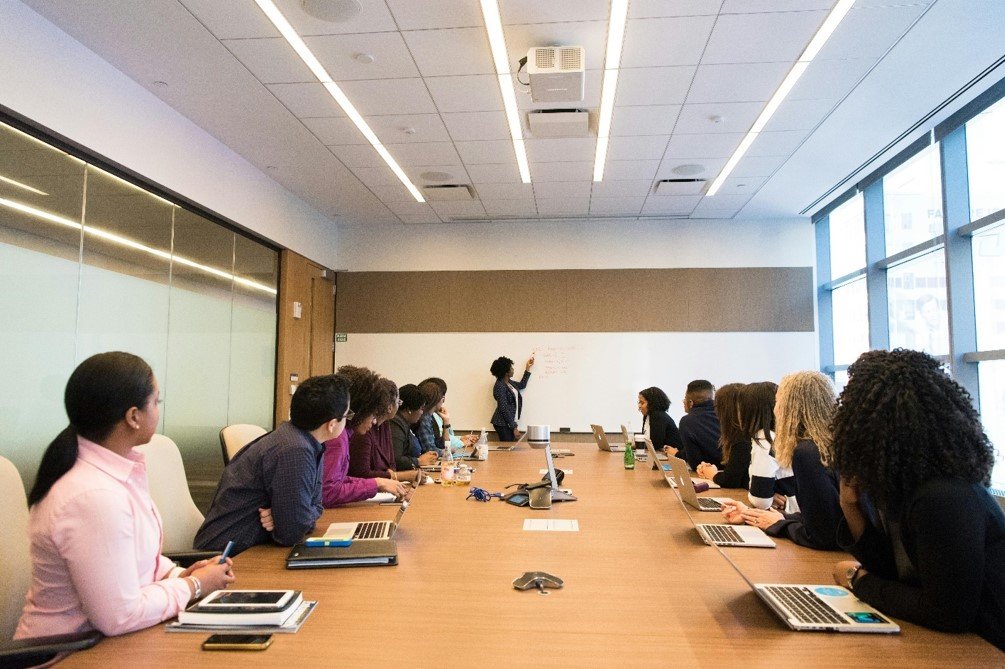Business
Why Lifelong Learning is the Key to Staying Competitive in Business

The business world moves faster than ever before. New technologies emerge, markets shift, and customer expectations evolve constantly. In this environment, what worked yesterday might not work tomorrow, and the skills that got you to your current position may not be enough to keep you ahead.
That’s why lifelong learning has become essential for career success. It’s no longer optional to update your knowledge. It’s a necessity if you want to stay relevant and competitive. Whether you’re an entrepreneur, a manager, or a seasoned executive, your ability to adapt, grow, and learn new skills determines how well you can navigate change.
The good news is that learning opportunities today are more flexible than ever. From online programs to professional workshops, you can build new skills while continuing to work. For business leaders and professionals, structured education can be a powerful way to expand your expertise without stepping away from your current role.
Formal Education as a Tool for Lifelong Learning
While reading articles, attending conferences, and networking are valuable, formal education offers a deeper and more focused approach. Advanced business programs allow you to strengthen leadership skills, sharpen strategic thinking, and gain new perspectives that you can immediately apply in your work.
If you’re a busy professional aiming to expand your leadership capabilities while keeping up with your current responsibilities, exploring executive MBA distance learning can provide the flexibility and depth you need to achieve both. The University of North Carolina Wilmington offers an Executive MBA program designed specifically for working professionals, combining online learning with practical, real-world applications. This program helps you enhance your decision-making, strategic leadership, and business expertise, all without putting your career on hold.
By choosing a structured program like this, you gain access to high-level insights, networking opportunities with other professionals, and a curriculum that addresses the challenges modern leaders face. It’s a direct investment in both your personal growth and your long-term career success.
The Business Case for Lifelong Learning
Businesses thrive when their leaders and teams are adaptable. When you continuously learn, you bring fresh ideas and innovative solutions to your organization. It not only helps you stay competitive but also positions you as someone who can anticipate changes and respond effectively.
Industries that rely heavily on technology, data, and global markets change especially quickly. Without ongoing education, it’s easy to fall behind and miss opportunities. By committing to lifelong learning, you keep your skills sharp and your knowledge current, which directly impacts your ability to lead and make sound business decisions.
Adapting to Industry Changes
Change is the only constant in business. Whether it’s the introduction of new tools, evolving regulations, or shifts in consumer behavior, you need to be ready to pivot. Lifelong learning allows you to adapt quickly because you’re already in the habit of seeking out and applying new information.
Consider professionals who have successfully transitioned into emerging roles, such as data-driven marketing, digital transformation leadership, or sustainability strategy. These individuals didn’t get there by chance; they invested in learning that prepared them for the shift, giving them an edge over others who resisted change.
Building Leadership Through Ongoing Education
Strong leadership requires more than just experience. It requires the ability to think strategically, manage diverse teams, and make informed decisions under pressure. Lifelong learning ensures that your leadership skills grow in step with the demands of your role.
Educational programs, leadership workshops, and advanced degrees give you the tools to lead with confidence. They expose you to different management styles, problem-solving approaches, and case studies that you can draw on when challenges arise. By continuing to learn, you position yourself as a leader who is adaptable, forward-thinking, and prepared for the future.
Lifelong Learning Beyond the Classroom
While formal education plays a big role, lifelong learning also happens outside the classroom. You can learn from industry events, peer groups, mentorship relationships, and self-directed study. Books, podcasts, and online resources offer valuable insights that complement structured programs.
The key is to combine these informal learning experiences with formal education so you’re developing both practical skills and in-depth expertise.
Creating a Personal Learning Strategy
To make lifelong learning part of your professional life, start by assessing where you are now and where you want to be. Identify the skills you need to reach your career goals and choose learning opportunities that fit your schedule and learning style.
Whatever approach you choose, make sure it’s consistent and goal-oriented so you can track your progress and apply what you learn.
In today’s fast-changing business environment, lifelong learning isn’t just a personal advantage. It’s a competitive necessity. By committing to ongoing education, you’re preparing yourself to lead effectively, adapt to change, and seize new opportunities.
The time and effort you invest in learning will pay off in your career and your organization’s success. And when you choose the right educational path, you’re not just keeping up. You’re setting the pace for others to follow.
-

 Entertainment1 month ago
Entertainment1 month ago123Movies Alternatives: 13 Best Streaming Sites in 2026
-

 Entertainment2 months ago
Entertainment2 months ago13 Free FMovies Alternatives to Watch Movies Online in 2026
-

 Entertainment1 month ago
Entertainment1 month ago13 Flixtor Alternatives to Stream Free Movies [2026]
-

 Entertainment1 month ago
Entertainment1 month agoGoMovies is Down? Here are the 11 Best Alternatives






